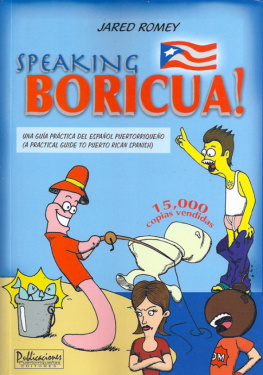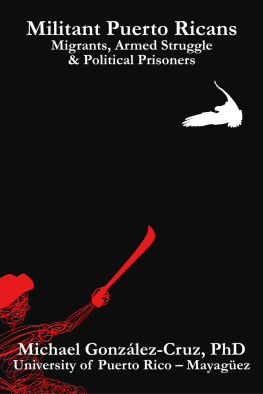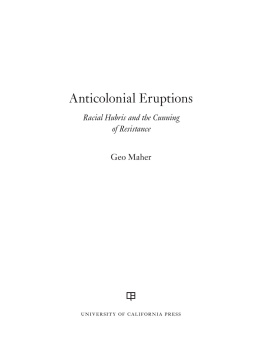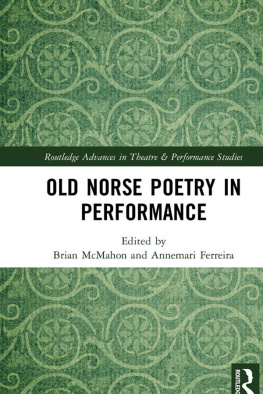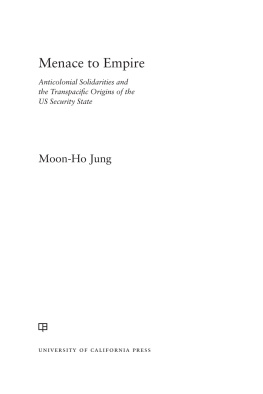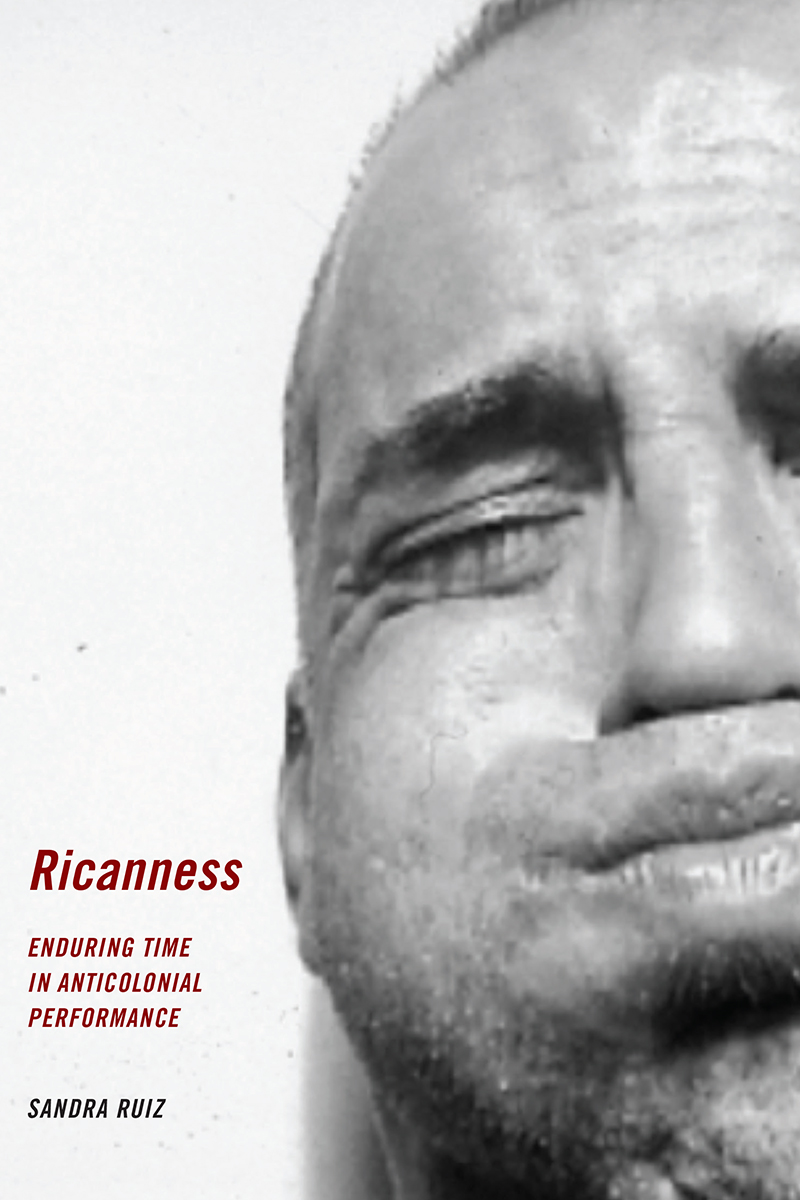
Ricanness
Ricanness
Enduring Time in Anticolonial Performance
Sandra Ruiz

NEW YORK UNIVERSITY PRESS
New York
NEW YORK UNIVERSITY PRESS
New York
www.nyupress.org
2019 by New York University
All rights reserved
References to Internet websites (URLs) were accurate at the time of writing. Neither the author nor New York University Press is responsible for URLs that may have expired or changed since the manuscript was prepared.
Library of Congress Cataloging-in-Publication Data
Names: Ruiz, Sandra, author.
Title: Ricanness : enduring time in anticolonial performance / Sandra Ruiz.
Description: New York : New York University Press, 2019. | Includes bibliographical references and index.
Identifiers: LCCN 2018041762| ISBN 9781479888740 (cl : alk. paper) | ISBN 9781479825684 (pb : alk. paper)
Subjects: LCSH : Postcolonialism and the artsPuerto Rico. | Time and artPuerto Rico. | Arts, Puerto RicanThemes, motives. | Group identity in art.
Classification: LCC NX180.P67 R85 2019 | DDC 700.68/7295dc23
LC record available at https://lccn.loc.gov/2018041762
New York University Press books are printed on acid-free paper, and their binding materials are chosen for strength and durability. We strive to use environmentally responsible suppliers and materials to the greatest extent possible in publishing our books.
Manufactured in the United States of America
10 9 8 7 6 5 4 3 2 1
Also available as an ebook
For all of the victims of Hurricane Maria
Listen real tight for a whimper,
Or perhaps a delicate address from the dead,
because even the hushed,
those unwanted,
those unrecorded
carry essence.
For my mentors dreaming elsewhere
Randy Martin
Jos Esteban Muoz
For my father, que siempre le dio tiempo al tiempo
Juan Carrion Ruiz
Contents
List of Figures
Figures I.1I.3. Photographs from series Puerto Ricans Underwater/Los ahogados, ADL, 2016
Figure 1.1. Dolores Lolita Lebrn Sotomayor, photographed after her arrest in 1954, on the cover of the Washington Post Magazine in 2004
Figure 1.2. Lebrn after her arrest, 1954
Figure 1.3. Lebrn with Cancel Miranda, Figueroa Cordero, and Flores Rodrguez, 1954
Figure 1.4. Lebrn speaking at a news conference upon her release from prison, 1979
Figures 2.12.4. Papo Colo, Superman 51 (stills from video documentation of performance), 1977
Figure 2.5. Papo Colo, Coronation (still from video documentation of performance), 1976
Figure 3.1. Pedro Pietri performing at the Poetry Project, 1991
Figure 3.2. Pedro Pietri reading at a party at Taller Boricua, 1973
Figures 4.14.2. Images from a sketchbook documentary of Ryan Riveras life, drawn by his friend Yuko Shimizu in 2002 and posted to her blog in 2010, after his death
Figure 4.3. Video still from Ryan Riveras Hand Play, 2002
Figure 4.4. Video still from Ryan Riveras Goodbye Piece, 2002
Figure 4.5. Video still from Ryan Riveras Breath Piece, 2002
Figure 4.6. Video still from Ryan Riveras Reflex, 2002
A Living Colonialism, or Simply, the Aesthetic Life of Ricanness
I came into the world imbued with the will to find a meaning in things, my spirit filled with the desire to attain to the source of the world, and then I found that I was an object in the midst of other objects.
Frantz Fanon, Black Skin, White Masks
Puerto Rico is the most important place in the world.
Laura Briggs, Reproducing Empire
Its the sense of denial of self-determination... that feeling you get from not being in control of your own life... not having a voice, feeling impotent inside of your own condition.
ADL, interviewed by Jhoni Jackson
If Puerto Rico is the most important place in the world, that is, the perfect site to detangle the threads of modern globalization and the incessant desires of colonialism, how do we critically reorganize the significance of the Rican being in a larger analysis of existence? At the apex of the Rican colonizer/colonized dialectic exists a subject that is continually hunted and unwanted, and is equal parts needed and inessential. This book, then, tells the story of the most important people in the world through a series of aesthetic sites, disclosing this ambivalent interplay between being dispensable and demanding to be wanted.
Almost fifteen years after Briggss bold claim, Puerto Rico continues to reveal how imperial methods sustain nations and dismantle bodies. September 2017s Hurricane Maria is a chief instance of how the Rican body, in particular, continuously enacts permanent endurance practices to cultivate an existence under colonial time.island, are the infinite example of that perennial subject of the world, always already working against their own life at the cost of perpetual death, while simultaneously revealing how practices of Empire surpass the annexation of land. The colonial figures into every corporeal, performative, and psychical contour of the subject, at the pinnacle of their essence, regardless of where they build ground. In this book, the aesthetic directs our understanding of politics and Ricanness, leading us through the most painful but promising inquiries of subjugation at the scene of the enduring body.
The history of Ricanness embodies colonialisms global desiresan everlasting conquest of land, resources, cultural and social practices, and native peoples themselvesthat began even before it started in 1492. In our turn to new decolonial language to meet the demands of an emerging historical moment, the colonial refuses its own disappearance. It remains a living enterprise.
Following the largest migration of Puerto Ricans to the United States in the late 1940s, political tensions between the island and mainland reignited, and the 1950s rehearsed opposing nationalisms from both the colony and the colonizer. Since 1952, this has been one version of the political, cultural, and economic interarticulation between the us/them dialectic through the Estado Libre Asociado. However, a Free Associated State, or a Commonwealth, as a national designation is filled with biting irony: for whom is the wealth common, or whose common wealth is implicitly denied in economic exchanges? The current debt crisis on the island points us in the direction of surplus labor and dead timeboth in which Ricans are always unpaid in their endless fight for existence. It is difficult to ignore how the colonial history of Puerto Rico and the United States is always beginning againits an infinite project that forces one to contend with the future, even in spaces of present and foreseeable violence. It is also a project in temporal looping whereby actions to redress the past lead us into the future and back again to something prior; this is the affective consequence of colonialisman active state in the here and now, looping forward and back into itself as if time never started or stopped ticking.
This eternal looping exposes what is done to the material, national, and discursive body in the name of historical expansionism. Puerto Rico is that colony that sustains the global and refuses to surrender local indignations. Its the Empires response to the violence of its very own modernity, in which the people learn repeatedly how to disperse new ways of being and becoming in their acts of survival. But what does a historical tale about colonialism impart on the aesthetic life of Ricanness? How does the story of this book, in which the aesthetic reshifts the political contours of existence, get us closer to the temporal demands of Ricanness?
Next page

